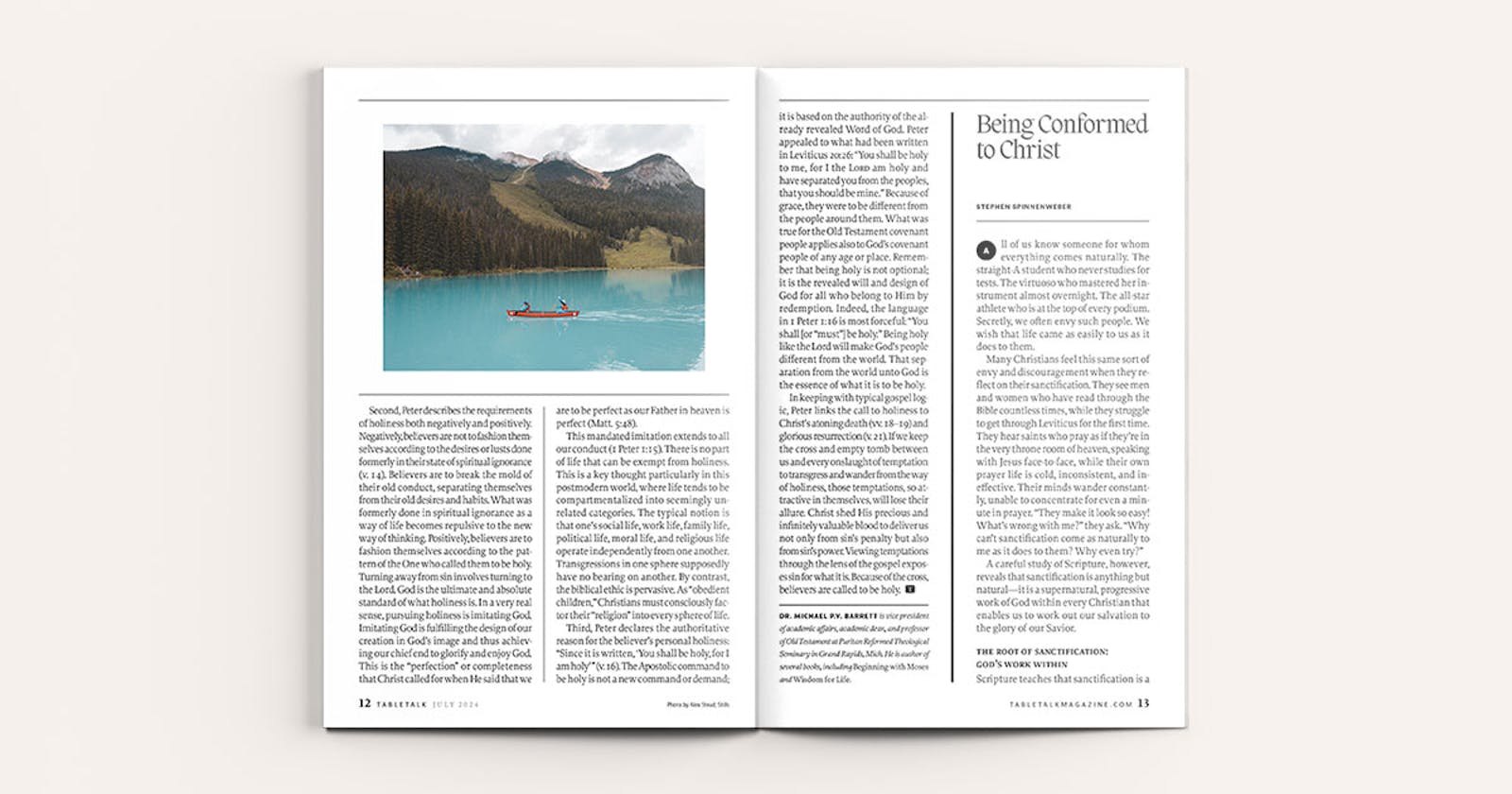
Request your free, three-month trial to Tabletalk magazine. You’ll receive the print issue monthly and gain immediate digital access to decades of archives. This trial is risk-free. No credit card required.
Try Tabletalk NowAlready receive Tabletalk magazine every month?
Verify your email address to gain unlimited access.
All of us know someone for whom everything comes naturally. The straight-A student who never studies for tests. The virtuoso who mastered her instrument almost overnight. The all-star athlete who is at the top of every podium. Secretly, we often envy such people. We wish that life came as easily to us as it does to them.
Many Christians feel this same sort of envy and discouragement when they reflect on their sanctification. They see men and women who have read through the Bible countless times, while they struggle to get through Leviticus for the first time. They hear saints who pray as if they’re in the very throne room of heaven, speaking with Jesus face-to-face, while their own prayer life is cold, inconsistent, and ineffective. Their minds wander constantly, unable to concentrate for even a minute in prayer. “They make it look so easy! What’s wrong with me?” they ask. “Why can’t sanctification come as naturally to me as it does to them? Why even try?”
A careful study of Scripture, however, reveals that sanctification is anything but natural—it is a supernatural, progressive work of God within every Christian that enables us to work out our salvation to the glory of our Savior.
the root of sanctification: god’s work within
Scripture teaches that sanctification is a supernatural work of the Holy Spirit that begins with the renewal of one’s heart and mind. In Ezekiel 36:26, God’s promise of salvation is that He will sovereignly remove the sinner’s heart of stone and replace it with a heart of flesh. Without this inward transformation, all external reform is hollow, hypocritical, and displeasing to God. Christ rebuked the Pharisees for such formalism, calling them “whitewashed tombs” who praised God with their lips while their hearts were far from Him (Matt. 23:27; see Isa. 29:13). The Westminster Shorter Catechism teaches that in sanctification we are “renewed in the whole man after the image of God, and are enabled more and more to die unto sin, and live unto righteousness” (Q&A 35). Sanctification is not partial in scope; it is a comprehensive work of the Spirit that transforms the sinner from the inside out.
To what end is this new heart given? As Ezekiel 36:27 says, “I will put my Spirit within you, and cause you to walk in my statutes and be careful to obey my rules.” The grace of sanctification is meant to be put to use; our new and living hearts are not dead ends. The Holy Spirit’s work within us empowers us to walk in obedience to God’s commands as an expression of thanksgiving for our redemption in Christ.
the fruit of sanctification: our working out
The Apostle Paul called the Philippians to “work out [their] own salvation with fear and trembling, for it is God who works in [them], both to will and to work for his good pleasure” (Phil. 2:12–13). Notice how Paul grounds the imperative to “work out” in the indicative of God’s working within. Every ounce of effort that we expend in the pursuit of holiness is but the fruit of divine grace. Believers cannot work for, or merit, salvation by their works, but Paul reminds us that we are God’s workmanship, “created in Christ Jesus for good works, which God prepared beforehand, that we should walk in them” (Eph. 2:10).

In the early nineteenth century, the Keswick Movement popularized the notion that sanctification is as easy as “letting go and letting God.” Like justification, sanctification was viewed as an entirely passive experience. But this is not the biblical picture. Believers are commanded in countless places to walk by the Spirit, to strive, and to put to death remaining sin (Gal. 5:16; Col. 3:5; Heb. 4:11). Sanctification is an active business. William Swan Plummer said it well: “In justification sin is pardoned. In sanctification sin is slain.” We are commanded to wage war against our sin, but always in the strength of His might (Eph. 6:10). In God’s strength, we have more power to fight against sin than we could ever think or imagine.
So if you find that being conformed to Christ is difficult, do not lose heart. You are not alone. Sanctification is hard work. And yet, challenging as it is, you can rest in God’s precious promise that “he who began a good work in you will bring it to completion at the day of Jesus Christ” (Phil. 1:6).
